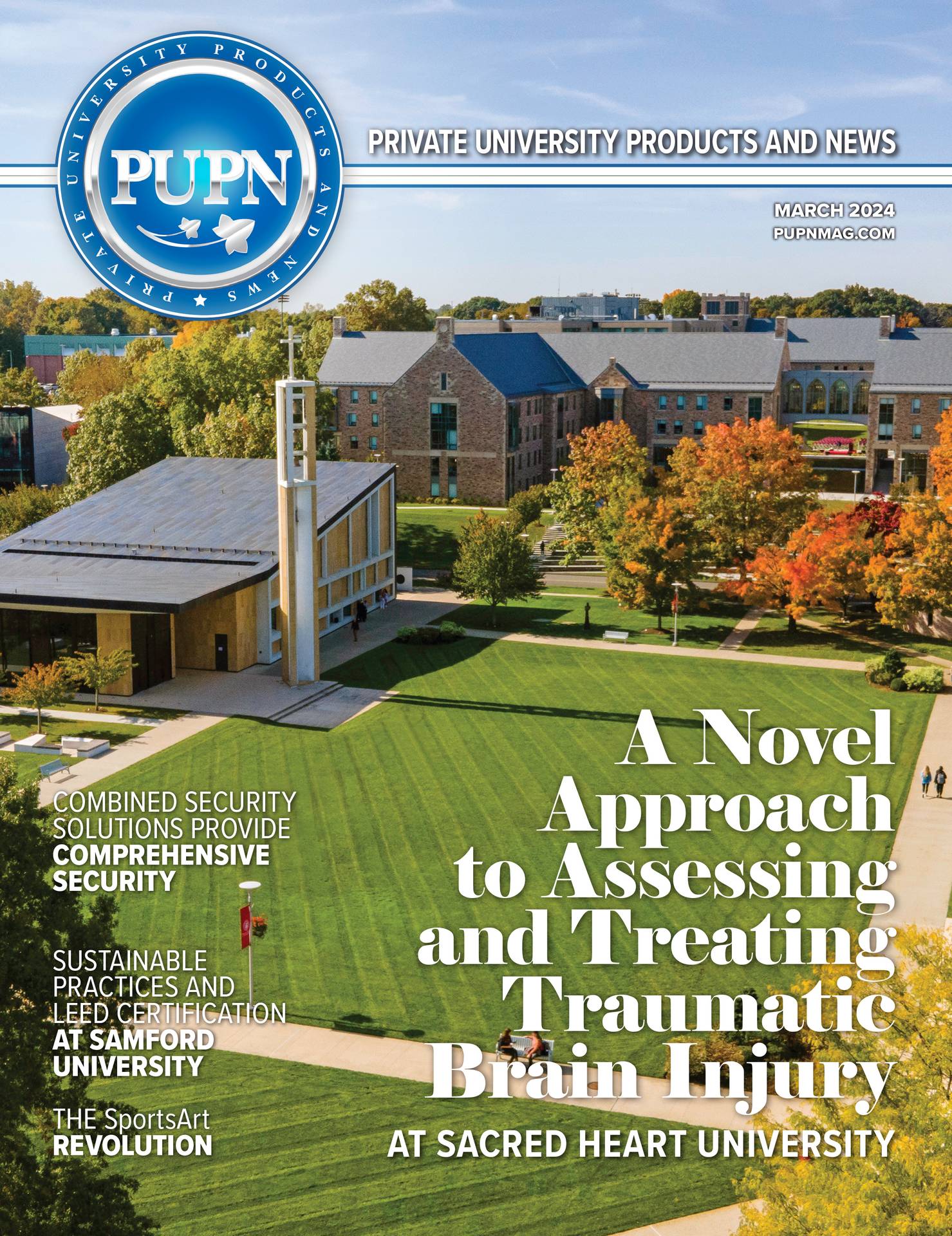Figuring out eSports’ Place in College Athletics
In his “State of College Sports” address at the 2019 National Collegiate Athletic Association’s annual convention, President Mark Emmert posed a question that apparently popped up repeatedly at the convention: “Should the NCAA be involved in eSports or not?” While Emmert did not offer any definitive answers, he clearly felt that eSports was part of the future of college athletics, and so institutions and the NCAA will have to ask some serious questions about that future. “Here we have this rapidly growing global phenomenon,” Emmert explained, “it’s exploding on all your campuses—but you will have to sit down and say, ‘what do we want to do with this?’”
That question is one private colleges and universities are uniquely poised to take a lead in answering. While the NCAA has not yet taken action, The National Association of Collegiate eSports (NACE), a nonprofit membership association formed in 2016, has emerged as the go-to association for varsity eSports for colleges and universities with over 180 member institutions. Not every college eSports team is a NACE member, however. Despite the growing popularity and acceptance of eSports on college campuses, its relative novelty and lack of standardized practices are challenges in legitimizing eSports.
One of the major challenges facing eSports is that they don’t have a standard “home” on campus. Almost half of NACE member institutions house eSports under their student activities divisions along with club and intramural sports. Many other institutions run eSports through their athletics departments, such as Marquette University. eSports programs at other colleges and universities may be scattered across campuses, however, including in academic departments, as is the case at Southwestern College. This ad hoc distribution of eSports across college campuses creates some difficulty in standardization and regulation that keeps athletics consistent. The kind of consistency an organization like the NCAA purports to provide.
To help legitimize college eSports, private institutions can establish flagship varsity eSports programs in their existing athletics departments. Many are already doing this, as PUPN highlighted previously, including Keuka College, Kansas Wesleyan University, and Columbia College. Some private colleges and universities are looking to go even further. Marquette University announced in 2019 that their eSports team will be “the first in the nation run by a major conference Division I athletics program.” That plan has been delayed due to the university’s search for a corporate sponsor for the team and the current COVID-19 pandemic. Their club team continues to play, however, with nine teams still competing even as NCAA sports have been cancelled or delayed.
eSports Enter the Arena
Private universities and colleges have an opportunity to lead the way in establishing the standards to legitimize eSports. One of the ways to do this is to provide training and competition-ready athletic facilities for eSports on par with those provided for sports like football, softball, and basketball.
Private institutions are already leading the way in building state-of-the-art training facilities and eSports arenas. Harrisburg University of Science and Technology (HU), for example, built a 2,400-square-foot training arena in a former dance studio at the Whitaker Center for Science and the Arts, a local non-profit arts and sciences center in Harrisburg, PA. The facility features two dozen gaming stations as well as spaces for coaches and athletes. In addition to serving as HU’s eSports team’s home stadium, arena, and practice space, the Whitaker Center also has room for up to 700 spectators of live matches in the center’s cinema and theater spaces.
Full Sail University, a private for-profit institution, has built a state-of-the-art arena called “The Fortress.” Unlike most college eSports arenas, The Fortress is designed to be a professional eSports arena. The $6 million arena is an 11,200-square-foot space designed to house 100 athletes and more than 500 live spectators. In addition to the commercial eSports scale and support for the eSports team, however, Full Sail University’s arena also provides other opportunities for students in the form of training in live production, film production, business entertainment, and more.
Not all college eSports arenas need to come with a seven-figure price tag, however. In fact, one major advantage eSports facilities have over traditional sports facilities is they are generally much cheaper. Many arenas at private institutions are housed in student centers and other campus buildings. Most are simply large rooms with the necessary space and equipment to train and compete, with the greatest expenses coming from the gaming equipment needed to train and compete at a high-level. Columbia College’s “Game Hut,” for example, occupies a former soccer facility in their athletic training and academic complex, which the university renovated for under $1 million. New England College only spent approximately $60,000 in building its eSports arena according to school officials. But these smaller eSports facilities are generally for training, often lacking the space for live audiences and hosting competitions.
An Opportunity to Lead
eSports can also be a profitable venture for colleges and universities, like any successful athletic program. Unlike most varsity sports, however, eSports has relatively low overhead. Aside from providing scholarships, coaches, and a facility, the greatest costs come from the gaming “rigs” for each athlete. These rigs generally include high-end gaming PCs, high-resolution monitors, specialized gaming mice and controllers, and ergonomic gaming chairs (unlike most sports, your athletes are sitting for hours). A competition-ready rig can cost less than $5,000 dollars and only needs to be partially upgraded every few years. Teams, which usually specialize in one particular game such as Overwatch, League of Legends, or Fortnite, generally have anywhere between two and twelve members. The number of teams a school fields can scale easily as a program grows.
While overall costs can be relatively low, the rewards can be high. eSports overall is a billion-dollar industry that is growing every year. There are thousands of gaming tournaments around the world every year with monetary prizes for some professional competitions measured in the millions. Tespa, the collegiate eSports division of Overwatch makers Blizzard Entertainment, has offered prizes of scholarships and cash of $1 million in recent tournaments. eSports also offers many potential opportunities for commercial sponsorship and partnerships. This is not to mention the potential monetization from streaming sites like Twitch, YouTube, and Mixer. Although these monetary prizes and sponsorships makes the NCAA wary of taking on eSports as a college sport, private universities can simultaneously benefit in the short term and help shape the standards for how eSports handles these financial elements.
Another advantage of eSports is that as competition is virtual, eSports can continue in the age of COVID-19. Although tournaments are traditionally conducted in a shared space over a local area network (LAN), the teams themselves do not have to be face-to-face. While NCAA sports face cancellation and huge financial losses in the near future due to the pandemic, eSports have mostly continued. There are certainly many challenges and expenses in developing or expanding eSports at an institution, but there are also many benefits. If eSports represent the future of athletics, private institutions are well positioned to be at the forefront of that future.










